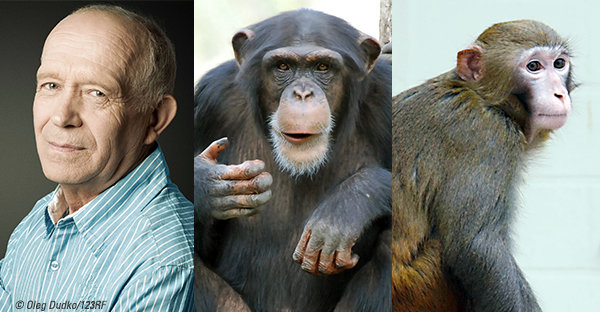
Research on primates
As a group, primates include humans, the larger great apes (gorillas, chimpanzees, orangutans, bonobos) and monkeys (macaques, marmosets, baboons, etc.). Members of the latter group are also known as non-human primates. Research on (willing) human subjects and animal research on non-human primates is permitted within the framework of very strict legal provisions in Germany.
Research on great apes is not permitted; it has not been performed in Germany since 1991. And for good reason: compared to (many) other animals, great apes display very special cognitive and emotional skills. They are also believed to have some form of self-awareness and rudimentary linguistic abilities. Because of this, biomedical research on great apes is largely considered to be more ethically questionable than research on other animal species. Exceptions are made when acute, life-threatening epidemics must be fought and there are no other options. However, extensive field studies of great apes do exist. In recent decades, they have provided important clues to the evolutionary origins of our own cognitive and cultural development.














